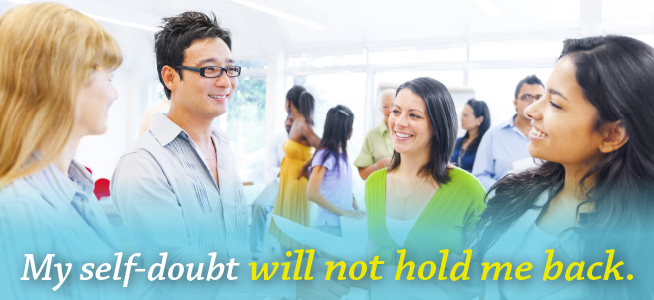Symptoms & Signs of Social Anxiety
Understanding and overcoming social anxiety begins with a willingness to take the time to learn to recognize the signs. The symptoms of social anxiety are unique to every individual, but there are several over-arching emotions, behaviors and physical reactions that are common amongst sufferers of the disorder.
Because social anxiety can affect people of all ages, and the onset of the disorder can surface at anytime, we have organized the top five indicators of social anxiety into three age groups.
top five indicators of social anxiety
- Selective mutisim (inability to speak in one or more social settings)
- Anxiety in peer social situations
- Over-dependence on parents
- Separation anxiety
- A propensity for whining/temper tantrums in performance situations
- Lack of and avoidance of peer relationships outside the family
- Over-dependence on technology (ex: computer games) at the expense of socialization
- Anxiety in social situations involving groups of people
- Social skills deficit
- Rationalizing a lack of social life
- Fear of being noticeably nervous
- Obsessive worrying and anticipatory anxiety over social interactions and performance scenarios
- Over-dependence on technology for the purpose of avoiding face-to-face interaction
- Over-dependence of substances to function in performance-based interactions (prescription or recreational drugs, alcohol)
- Conversation problems. The “I don’t know what to say” syndrome.
other common characteristics of social anxiety
- A persistent fear in social or performance situations
- Fear of being humiliated or embarrassed
- Fear of social situations that provoke severe anxiety/panic attacks
- Avoidance of social situations due to anxiety/distress
- Fear interferes with a normal routine or impedes with daily life
- General distress and discomfort as a result of these symptoms
The intense fear and worrying caused by social anxiety can even manifest into physical symptoms for sufferers, which can include:
- Excessive sweating
- Blushing
- Muscle twitches/spasms
- Dry mouth
- Difficulty swallowing
- Increased heart rate
- Shaking or tremors
- Dizziness or feeling faint
- Shortness of breath
The situations that most often trigger a reaction in social anxiety sufferers generally involve interactions with others or the potential to be the focus of others. These situations include:
- Speaking or reading in public
- Eating in public
- Writing in public
- Being introduced to new people
- Forging friendships and romantic relationships
- Dating
- Social encounters with strangers (both formal and informal)
- Dropping or spilling something
- Using a public restroom
By no means is this a complete account of all the symptoms of social anxiety, and these lists should not be used as tools to self-diagnose. Speaking with a mental health professional who has a strong understanding of social anxiety is the best way to identify symptoms and develop a treatment plan.
